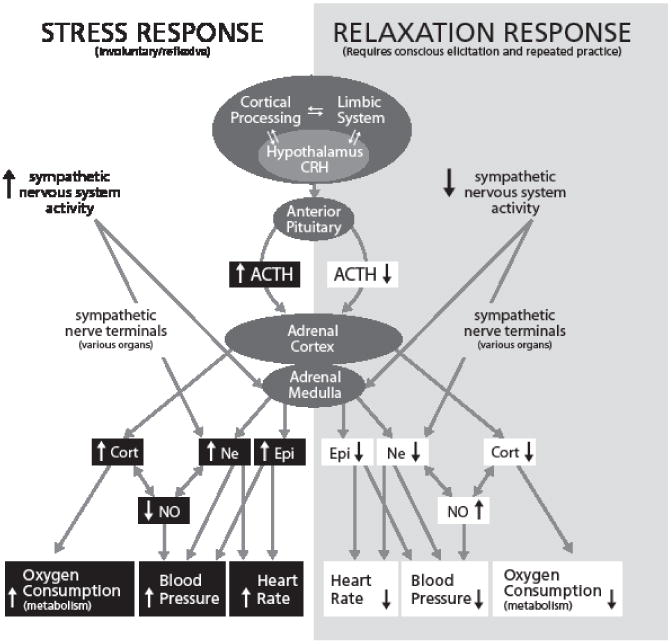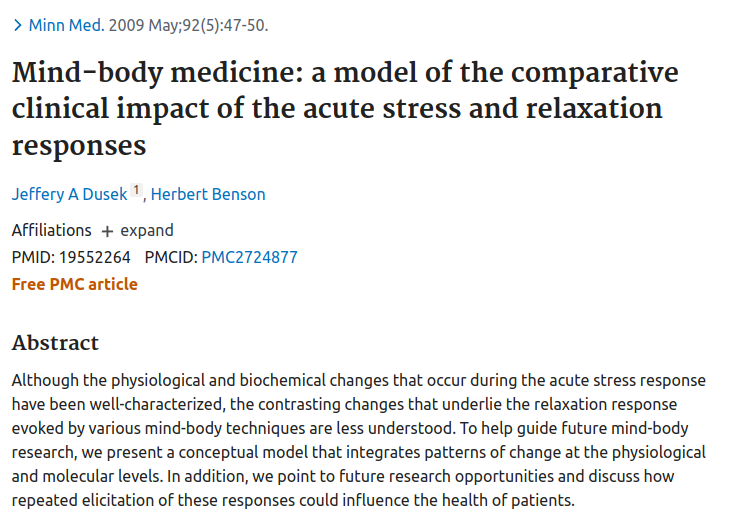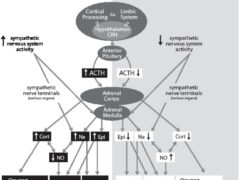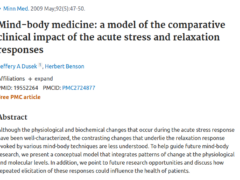Publication
Minn Med.
92(5): 47-50
Abstract
Although the physiological and biochemical changes that occur during the acute stress response have been well-characterized, the contrasting changes that underlie the relaxation response evoked by various mind-body techniques are less understood. To help guide future mind-body research, we present a conceptual model that integrates patterns of change at the physiological and molecular levels. In addition, we point to future research opportunities and discuss how repeated elicitation of these responses could influence the health of patients.
Web and Email Links
Related Listings
Journal
Global Advances in Integrative Medicine and Health
Mind–body medicine is an evidence-based approach to health and healing that focuses on interactions between the mind, body, and behavior. It encompasses a wide range of interventions that are similar yet different in meaningful ways. Mindfulness and relaxation practices are 2 mind–body techniques that have similarities and differences; however, these techniques are often used or discussed interchangeably, such that the differences between them become obscured. A greater understanding […]
Journal
Journal of the American Heart Association
·
Provides 37 pages of summaries from decades of research concerning how meditation affects heart related functioning (blood pressure, heart rate, etc.) Abstract Despite numerous advances in the prevention and treatment of atherosclerosis, cardiovascular disease remains a leading cause of morbidity and mortality. Novel and inexpensive interventions that can contribute to the primary and secondary prevention of cardiovascular disease are of interest. Numerous studies have reported on the […]
Journal
PLOS ONE
Mind-body practices that elicit the relaxation response (RR) have been used worldwide for millennia to prevent and treat disease. The RR is characterized by decreased oxygen consumption, increased exhaled nitric oxide, and reduced psychological distress. It is believed to be the counterpart of the stress response that exhibits a distinct pattern of physiology and transcriptional profile. We hypothesized that RR elicitation results in characteristic gene expression changes that can be […]




